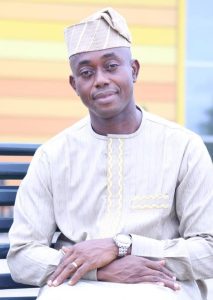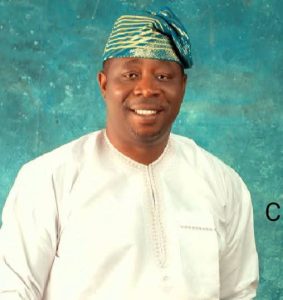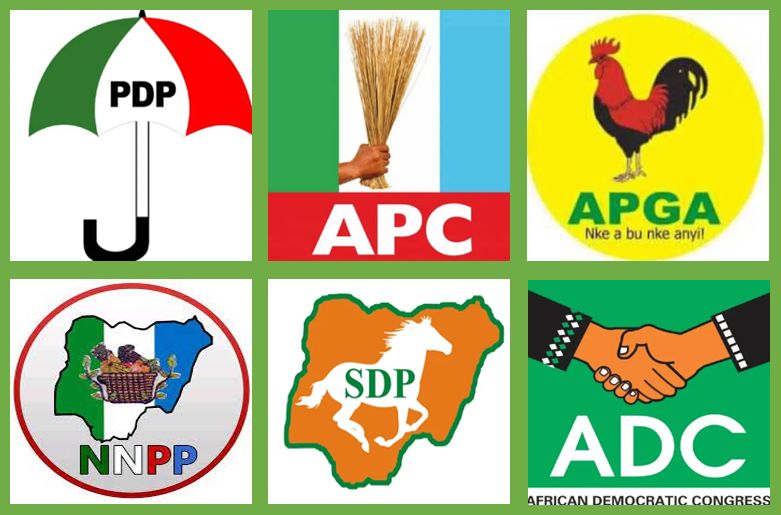By Friday Omasola, Helen Okechukwu and Fatimah Idera
Political Analysts have said Nigeria is not sinking towards one-party system. According to them, politicians who are defeated are defecting to All Progressives Congress for opportunity.
This followed the recent defections from key opposition parties, such as the People’s Democratic Party (PDP) to the APC.
Over recent months, governors and senators from the PDP had defected to APC.
This raised the alarm that no credible alternative may emerge to challenge President Bola Tinubu or the APC in the 2027 elections.

Reacting to the matter in an interview with New Daily Prime, political analyst Professor Busuyi Mekusi of African Literature in the Department of English Studies at Adekunle Ajasin University, Akungba Akoko (AAUA), attributed the wave of defections not to a political shift towards unity, but to the lack of ideological depth within the opposition.
He said many of the defectors are driven by personal ambitions rather than loyalty to Mr Tinubu or commitment to governance.
He also criticised the opportunistic nature of the moves, noting that these defections reflect self-interest rather than alignment with the APC’s vision or values.
Mr Busuyi noted, “It is what we call ethnic survivors in politics because the ruling party also has almost everything in its foot. Another fact is that they believe that the ruling party is domineering and can do and not do and for me, such an assumption is dangerous because they will be suggesting that our institutions are not viable enough to guarantee and protect the rights or the aspirations of the individual.
“But if we look at the 2023 election, we also know that Tinubu is also doing everything possible to ensure that he consolidates his vote, his support and judging from the fact that he is his major opponent, the 2023 election is now aligned into one force. In Nigeria, we planted a very unique democracy—our democracy is still evolving with all its many challenges. And one of the challenges we are facing as a nation that is a democratic government is the issue of lack of ideology in our political formation, identification and membership.”
He added that the situation within the APC reflects deeper concerns about the general state of political party management in Nigeria.
Mr Busuyi also stated that Mr Tinubu must respond swiftly if he hopes to stay ahead of challengers eyeing his position.
He noted that while Nigeria appears to be edging closer to single-party dominance, a strategic resurgence may still emerge in the coming months—even if the PDP currently lacks momentum.
“The PDP has been embattled and has been struggling for survival. And it’s been fixed with many internal contradictions. The party wanted, or, yes, decided to rule Nigeria for 16 years. But it’s coerced to rule Nigeria for 16 years. And the APC, as an opposition political party, abstained after 16 years. And since then, the party has been struggling to survive.”
“We shouldn’t forget, how did the party get to the point it went? It started because some elements in the PDP felt they shouldn’t implement rotational presidency. That is, the presidency they believe should rotate between the North and the South. And this led to a form of bickering, particularly as part of the push for 2023.
“And some members, particularly led by Nyesom Wike, you know, walked out of the party. And the party has never remained the same again. And we shouldn’t forget that the person who also got the presidential ticket, Alhaji Atiku Abubakar, also left the PDP for the APC, only for him to come back. And he received the ticket from Nyesom Wike, who said he funded the political party when these other people left. So, what is happening now, for me.”
Also speaking, political commentator Dr. Bayo Fasunwon from Adekunle Ajasin University, Akungba Akoko, dismissed fears that Nigeria is on the verge of becoming a one-party state, despite the defection of prominent opposition figures to the ruling All Progressives Congress (APC)

Fasunwon maintained that party switching by politicians does not automatically transform a multi-party democracy into a one-party system.
He noted that the wave of defections reflects a strategic mindset among politicians who believe unseating the APC at the polls may be difficult, if not impossible.
Fasunwon criticised this outlook as defeatist, suggesting it stems more from political calculation than ideological alignment.
“So, they are losing battles when they have not started. But in politics, you expect that. Organizations and parties you have never heard of before may come up. For example, look at the Labour Party. At the time, it sprung up and it won’t sit. So, there can still be some, you know, some other parties that may come that may even shake both the ruling party and even the PDP.
“I haven’t said that it’s not in the best interest of Nigeria to go into a one-party state. Because if you are a one-party state, you are talking about dictatorship. You are talking about tyranny. You are talking about the situation whereby change can only occur through coup plotting. And revolution.And once a nation deteriorates to that level, then there will be political instability, there will be insecurity, and it may even lead to the implosion of that nation.”
Similarly, another analyst, spoke about the fear of a one-party system, saying it is a rhetorical device used to deflect attention from organisational weaknesses, the absence of credible messaging, and the failure to connect with the electorate in a meaningful way.
He explained that when a party lacks internal cohesion and cannot forge alliances or offer a compelling alternative, the dominance of the ruling party appears overwhelming—not because it is invincible, but because the opposition is uninspired.
Read More:
Tinubu rules out one-party state, says APCs growth driven by performance
El-Rufai son backs Tinubu’s second term, defies father’s exit from APC
Tinubu mocks critics, says APC is driving Nigeria’s aspirations
Ahmed noted, “Although there was no significant panic about Nigeria becoming a one-party state gained mainstream traction, Why? Because the opposition—then fragmented—regrouped, recalibrated, and eventually formed the All Progressives Congress (APC), which unseated the PDP in 2015 and this shows that political power can shift when strategy replaces complaint.
“What we are seeing instead is a failure by opposition parties to build grassroots structures, frame clear policies, inspire voter confidence, or even manage internal democracy effectively.”
He stated that when one-party dominates all levels of government unchecked, institutions become vulnerable to manipulation, and the culture of checks and balances weakens.



